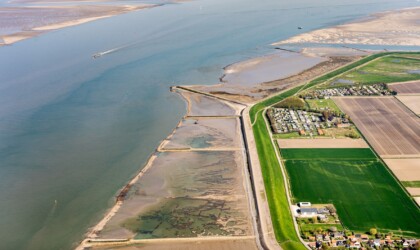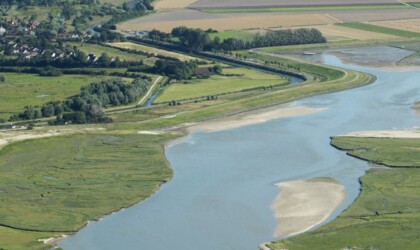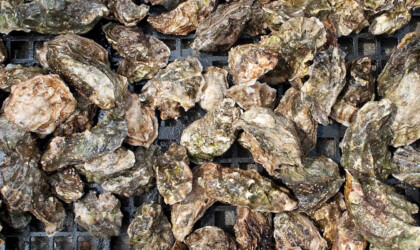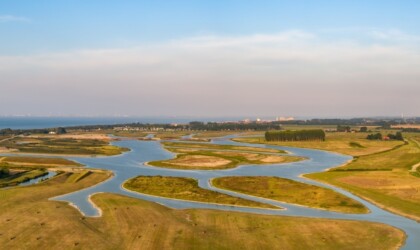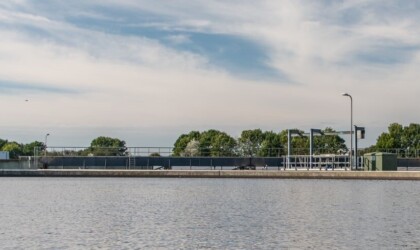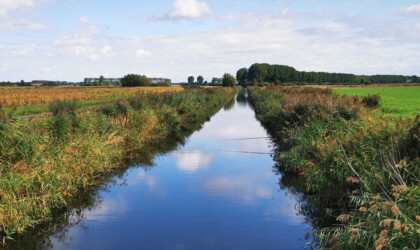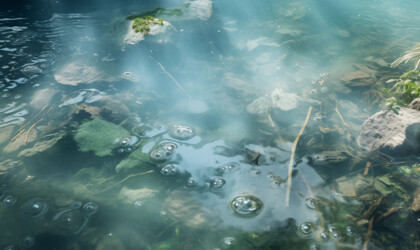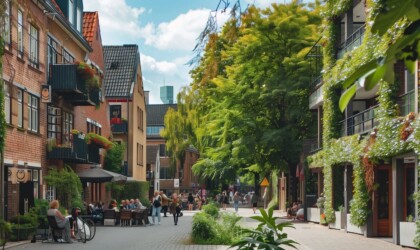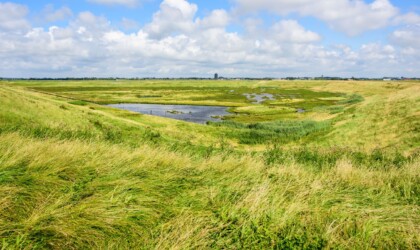Climate change is having an increasing impact on urban areas. It affects not only the safety of residents, but also the way they live and the affordability of their homes. Residents are confronted with developments such as heat stress, drought, intense rainfall, and flooding and water damage. Climate change also has a direct impact on the balance and preservation of biodiversity in the water, in the soil, and above ground.
The Zeeland Climate Adaptation project is creating climate innovation platforms in the Westerzicht neighborhood in Vlissingen and the Dauwendaele neighborhood in Middelburg. Within these platforms, residents, knowledge institutions, governments, NGOs, and the business community are innovating and experimenting with climate adaptation to preserve and improve the quality of life in residential areas, climate-proof ecology and biodiversity, and closed water cycles.
The current infrastructure of both residential areas is unable to counteract the consequences at the local level and contribute to solutions for the serious freshwater shortage at the regional level. Dauwendaele and Westerzicht lack green spaces, parks, and areas for social interaction. This has a negative impact on social livability. The homogeneous, often older population also frequently experiences a sense of social and traffic insecurity. Residents have an important voice in making the neighborhoods climate-proof. The (re)design of their living environment must be tailored to the cultural and demographic characteristics of the neighborhood.The (re)design of their living environment must be tailored to their cultural and demographic background.
Proof-of-concept for climate-adaptive neighborhoods
At the heart of Climate Adaptation Zeeland is a wide range of social, physical, and infrastructural innovations. This should result in a proof-of-concept for climate-adaptive neighborhoods in the region. The development process focuses on a closed and sustainable water cycle, a climate-proof ecological network, preventing the urban heat island effect, increasing neighborhood participation through co-creation, improving social and recreational facilities and social and traffic safety, increasing nitrogen and particulate matter capture, and improving access to affordable and healthy food.
Partners
Partners: Municipality of Middelburg, Municipality of Vlissingen, Zeeuwse Milieufederatie, HZ University of Applied Sciences, CitySeeds, PureBlue Water, Scalda Groen College, DSV Zaden Nederland, and Woongoed Middelburg.
The project has a total budget of €3,344,289.

